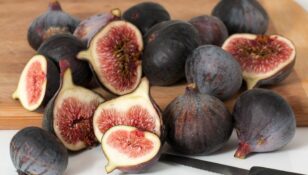PCOS Diet: A Comprehensive Guide to Managing Polycystic Ovary Syndrome

Introduction
Polycystic Ovary Syndrome (PCOS) is a common hormonal disorder affecting many women worldwide. One of the key aspects of managing PCOS is adopting a suitable diet that can help regulate hormones, improve insulin sensitivity, and promote overall well-being. In this article, we will provide an in-depth overview of the PCOS diet, including its types, popularity, quantitative measurements, differences between various approaches, and a historical review of the pros and cons associated with different PCOS diets.
I. An In-Depth Overview of PCOS Diet

PCOS diet refers to the specific dietary choices and patterns aimed at managing the symptoms and complications associated with PCOS. It focuses on consuming foods that promote hormonal balance, manage insulin resistance, and improve fertility. By incorporating certain dietary changes, women with PCOS can potentially alleviate symptoms such as irregular periods, excessive hair growth, acne, and weight gain.
II. Types of PCOS Diets
a) Low Glycemic Index (GI) Diet: This diet primarily focuses on consuming foods that have a low impact on blood sugar levels, thereby preventing spikes in insulin production. It includes whole grains, legumes, lean proteins, fruits, vegetables, and healthy fats.
b) Keto Diet: The ketogenic diet involves consuming high-fat, low-carbohydrate, and moderate protein foods. This approach aims to shift the body’s metabolism to burn fat instead of glucose, potentially aiding in weight loss, improving insulin sensitivity, and managing PCOS symptoms.
c) Mediterranean Diet: Inspired by the traditional dietary patterns of Mediterranean countries, this diet includes fruits, vegetables, whole grains, lean proteins, and healthy fats like olive oil and nuts. It focuses on overall health and may help manage PCOS symptoms due to its nutrient-rich composition.
III. Quantitative Measurements of PCOS Diet
To understand the effectiveness of different PCOS diets, various quantitative measurements can be considered. These include changes in body weight, insulin levels, and hormone profiles. Research has shown that adopting a PCOS-specific diet can lead to weight loss, improved insulin sensitivity, and favorable hormonal changes.
IV. Differences Between PCOS Diets
Despite the shared goal of managing PCOS symptoms, different diets can vary significantly in terms of macronutrient composition, food choices, and restrictions. While some diets prioritize carb restriction, others emphasize healthy fats or focus on a balanced approach. It is crucial for individuals to assess their individual needs, preferences, and consult healthcare professionals to determine the most suitable PCOS diet for them.
V. Historical Review of Pros and Cons Associated with PCOS Diets
Over the years, various PCOS diets have gained popularity, each with its own benefits and drawbacks. For instance, low GI diets have shown positive effects on insulin sensitivity and weight management, whereas the ketogenic diet has shown promise in reducing body weight and improving metabolic markers. However, some diets may be restrictive and require careful monitoring to ensure nutrient adequacy.
Conclusion
Adopting a PCOS diet can play a significant role in managing the symptoms and complications of Polycystic Ovary Syndrome. From low GI to Mediterranean and keto diets, there are various approaches that individuals can consider based on their specific needs. However, it is vital to work closely with healthcare professionals to personalize dietary recommendations. By striving for a balanced and nutritious approach, women with PCOS can take control of their health and improve their overall well-being.
(Note: Please note that the content presented in this article is for informational purposes only and should not be taken as medical advice. It is always recommended to consult with healthcare professionals before making any significant dietary changes.)

















